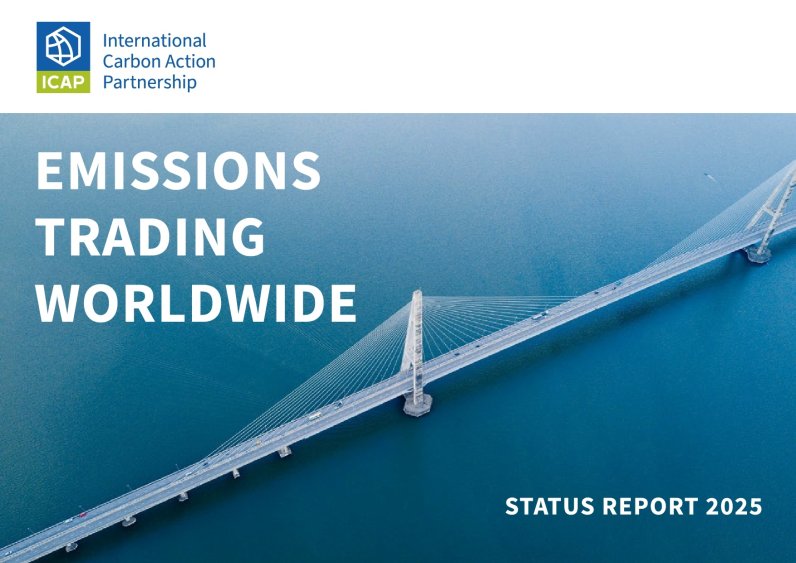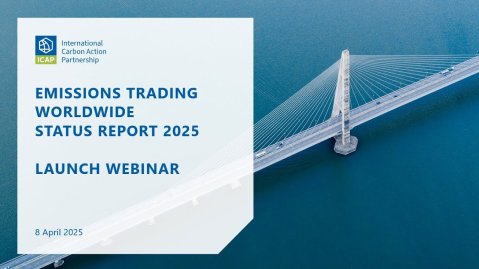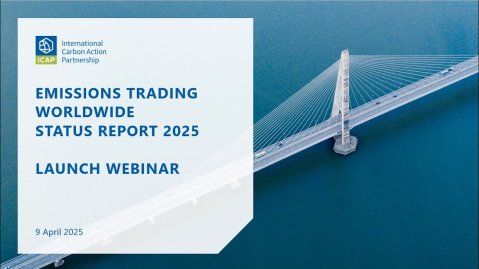Emissions Trading Worldwide: ICAP Status Report 2025


Category
Topics
Release date
Language
OUT NOW: ICAP Status Report 2025
The momentum for emissions trading continues, particularly in emerging economies, with crucial design considerations being explored on the road to net zero
- There are now 38 ETSs in operation globally, and a further 20 under development or consideration
- 23% of global GHG emissions are covered by an ETS
- Emerging economies are driving the next generation of ETSs
- Net-zero goals are driving specific design options and reforms to existing schemes
The number of emissions trading systems (ETSs) in operation around the world continues to grow, reaching 38 in 2025, with a further 20 systems in various stages of development or consideration.
This year’s ICAP Emissions Trading Worldwide Status Report finds that the momentum for emissions trading is particularly strong in emerging economies adopting innovative system designs, including in Brazil, India, Indonesia, Türkiye, and Vietnam. In most of these new systems, offsetting provisions and domestic crediting mechanisms are expected to play a central role.
At the same time, established systems are being refined and expanded. Notably, China has started expansion beyond the power sector to the steel, cement, and aluminum smelter sectors, increasing the system's emissions coverage by an estimated 3 GtCO₂e, corresponding to approximately 5% of global GHG emissions. The EU and UK are also advancing plans to cover additional sectors.
Carbon leakage remains a significant political concern, with Carbon Border Adjustment Mechanisms (CBAMs), such as those developed by the EU and the UK, becoming increasingly important tools for protecting competitiveness and reducing the risk of leakage.
“Temperatures in 2024 continued to soar, and the year overall was confirmed to be the hottest on record”, says Stefano De Clara, Head of the ICAP Secretariat. “It is encouraging to see the growth and spread of emissions trading systems around the world as a response to the climate crisis”.
He adds: “The issue of public acceptability and just transition remains central to the success of carbon pricing policies. Reinvesting auction revenues into decarbonization efforts and social measures is key to addressing these concerns“.
To view and download the full report please click here.
Stefano De Clara

The issue of public acceptability and just transition remains central to the success of carbon pricing policies. Reinvesting auction revenues into decarbonization efforts and social measures is key to addressing these concerns.“
To learn more about the ICAP Secretariat and stay up-to-date with current publications and events, please visit our website, subscribe to our quarterly newsletter, and follow us on LinkedIn.


